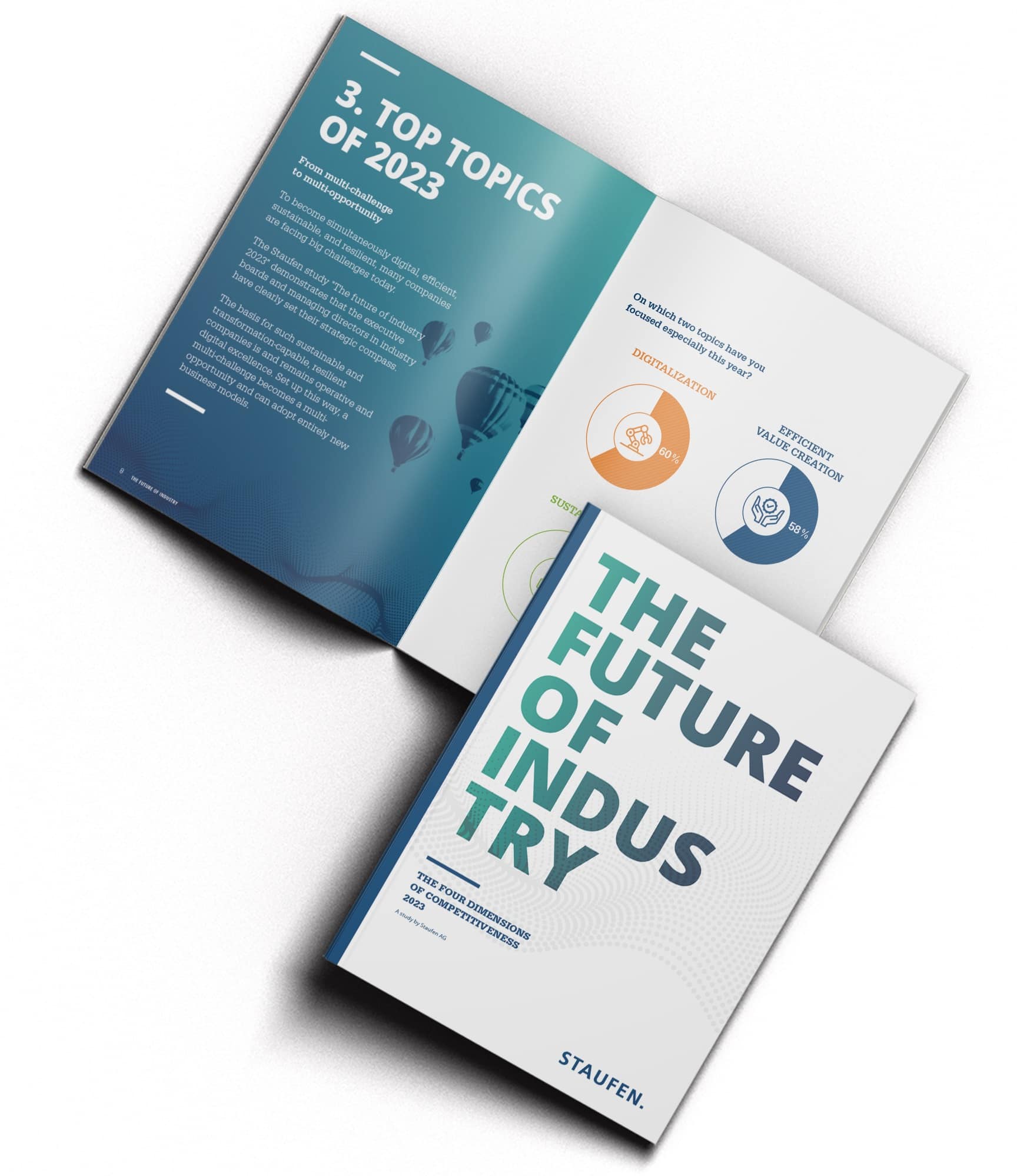
The recession in Germany, which has now been officially confirmed, has made the implementation of more efficient value creation a top concern for industrial companies. This is the result of the current study, “Future Industry 2023.” Instead of simply wielding the red pencil against cost pressure, 80% of companies want to achieve their goals with lean processes and by avoiding waste. For the study, the consulting company Staufen surveyed more than 400 industrial companies from German-speaking Europe.
Inflation and sharply increased energy costs are continuing to put industrial companies under pressure. The key to solving these problems is Lean Management. More than 90% of the companies surveyed for the study are convinced of this. “In the C-suites, the insight is that just cost cutting is a short-term solution and not sustainable,” says Christian Sprenger, Partner at Staufen AG. Four in ten companies (44%) are pursuing their growth goals with lean processes. In this Staufen partner’s opinion, this is the right path: “The central concern is to become more resilient and increase a company’s own competitive capability. Then crises aren’t so scary.”
Operational excellence: There’s a lot of potential in the indirect areas
The Lean maturity level determines how quickly and efficiently companies react to new challenges and can make forward-looking decisions. Although in the meantime more than 50% of industrial operations rely on Lean Management in their value creation, there are big differences here, now as before. Christian Sprenger: “Unfortunately, the terms Lean Management and lean processes are still predominantly linked to the area of production.” In fact, though, it is precisely the indirect areas that have the potential to make a significant contribution to improving results through operational excellence.”
Thus far, only about one in every five industrial companies apply lean principles in indirect areas. Approximately half of these lean pioneers are implementing the lean philosophy strategically and comprehensively. “A long-term improvement of company performance is only achieved by anchoring lean and change competence in the entire organization,” adds Staufen partner Christian Möllers. The communication capabilities of modern managers play a decisive role here, say eight of ten companies. Two-thirds (66%) also know that it’s precisely here that their own managers are most in need of training.
Your contact person
Our Staufen consultants will be happy to answer your questions.

Christian Sprenger
PartnerSTAUFEN.AG
After finishing his studies of business administration with focus on Corporate Finance and Management at the universities of Tübingen and Mannheim Christian Sprenger worked for the Wintergerst Societät für Unternehmer-Beratung for four years. There he accompanied various restructuring, growth and reorientation projects as well as M&A processes, primarily in the area of production companies. Christian Sprenger’s expertise especially lies within the field of Working Capital Managements as well as the analysis and development of integrated financial plans and financial modeling.
Read more
You might also be interested in

Cost pressure: “Cost cutting alone is too short-sighted and certainly not sustainable!”
All signs in the German economy are pointing to recession. So where can companies start to build up more resilience despite the challenges and enormous cost pressure? What can they do to strengthen their competitive strength over the long term? Staufen experts Christian Möllers and Christian Sprenger respond to the most pressing questions.
Read more
Operational Excellence
There is hardly any other corporate function in which employees can be taught the role of added value and waste as practically and quickly as in production. Optimization is used as the basis for helping Lean philosophy permeate the entire production process, and from there it affects the whole company.
Read more
Study: Future Industry
How the industry is positioning itself for the future! Our new study on the topics of digitalization, efficiency, sustainability and resilience.
Read more



